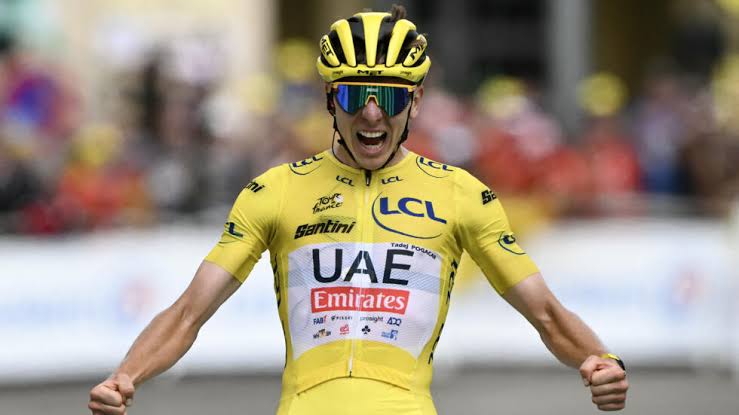Jonas Vingegaard Defends Tadej Pogačar Against Doping Allegations
In a recent clash of cycling titans, Jonas Vingegaard has come to the defense of Tadej Pogačar, vehemently rebutting doping accusations that have cast a shadow over the Slovenian cyclist’s achievements. The controversy has gained momentum with prominent figures like Lance Armstrong weighing in, but Vingegaard’s staunch support underscores the broader debate on performance-enhancing drugs in the sport.

The accusations against Pogačar, which have been circulating in cycling circles, are not new. They have intensified recently, particularly in light of his dominant performances and rapid rise in the cycling world. Lance Armstrong, the former cycling champion with his own complex history regarding doping, has been vocal about his skepticism towards Pogačar’s extraordinary results. Armstrong’s comments have sparked a wider discussion on social media and in the press, raising questions about the legitimacy of Pogačar’s success.
Vingegaard, the Danish cyclist who has been a key rival and competitor to Pogačar, has taken a firm stance against these allegations. In a passionate response, Vingegaard stated, “Enough! Why is everyone accusing Pogačar of doping? He is an exceptional cyclist.” His words reflect a broader frustration within the cycling community, where the scrutiny of top athletes often leads to unfounded accusations and controversy.
Vingegaard’s defense is notable not only for its fervor but also for its timing. As Pogačar continues to excel, winning major races and solidifying his status as one of the top cyclists of his generation, the pressure on him intensifies. Such scrutiny is a double-edged sword; while it highlights the high standards of performance in cycling, it also raises the risk of damaging an athlete’s reputation without substantial evidence.
The debate surrounding doping in cycling is complex and deeply rooted in the sport’s history. The legacy of Armstrong, who was stripped of his seven Tour de France titles due to doping violations, looms large over contemporary discussions. Armstrong’s involvement in the issue adds a layer of irony, given his own tumultuous past with performance-enhancing drugs. His criticisms of Pogačar have been seen by some as an attempt to divert attention from his own history rather than a fair critique of current athletes.
Pogačar, for his part, has consistently denied any involvement in doping. He has maintained that his achievements are the result of hard work, talent, and dedication. His responses to the accusations have been measured, emphasizing his commitment to clean sport and his desire to focus on his performance rather than the controversy.
The impact of such allegations on an athlete’s career can be profound. For Pogačar, who has become a symbol of youthful excellence and promise in cycling, these accusations represent a significant challenge. The constant need to defend oneself against such claims can distract from training and competition, potentially affecting performance and career trajectory.

Vingegaard’s defense of Pogačar also reflects a broader sentiment within the cycling community. Many athletes and fans believe that the sport should focus on celebrating achievements and encouraging clean competition rather than perpetuating suspicion and negativity. The emphasis on integrity and transparency remains crucial in maintaining the sport’s credibility and fostering a positive environment for current and future athletes.
As the debate continues, the cycling world watches closely. Vingegaard’s comments serve as a reminder of the importance of supporting athletes and maintaining a fair perspective on their achievements. The hope is that, with continued focus on clean sport and respect for the athletes’ efforts, the cycling community can move past these controversies and continue to celebrate the remarkable talents that define the sport.

